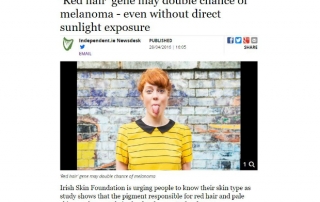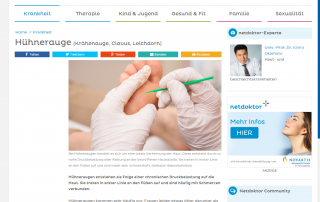Research group lead by Prof. Okamoto finds diverse effects of MC1R variants as riskfactors of melanoma between women and men
MC1R variants are established risk factors of melanoma. These genetic variants lead to the production of the less protective pheomelanin in melanocytes of the skin, thereby leading to rather fair skin and often to red hair. Now, Prof. Okamoto and his team find out that risk is different between females and males. MC1R variants increase










